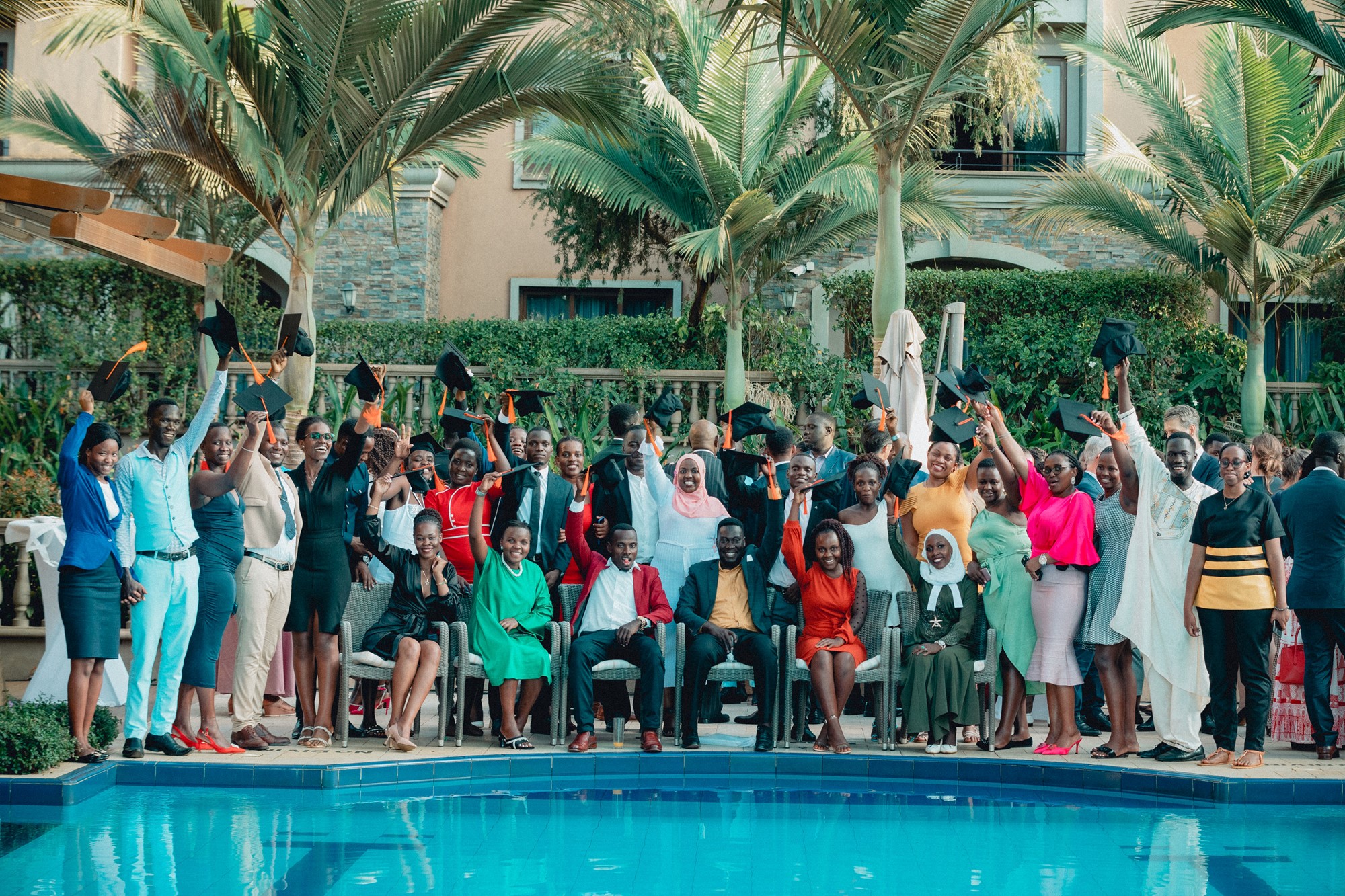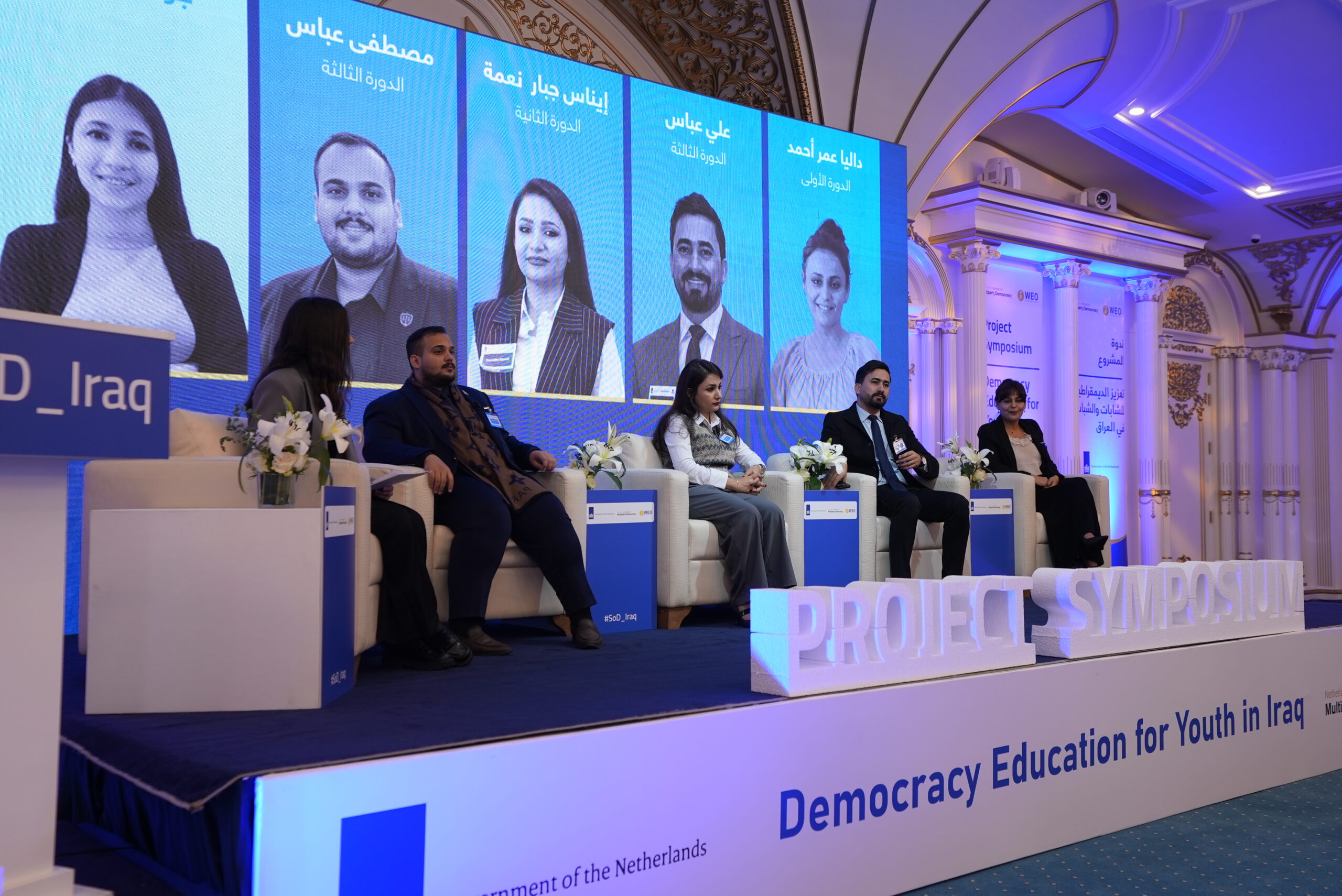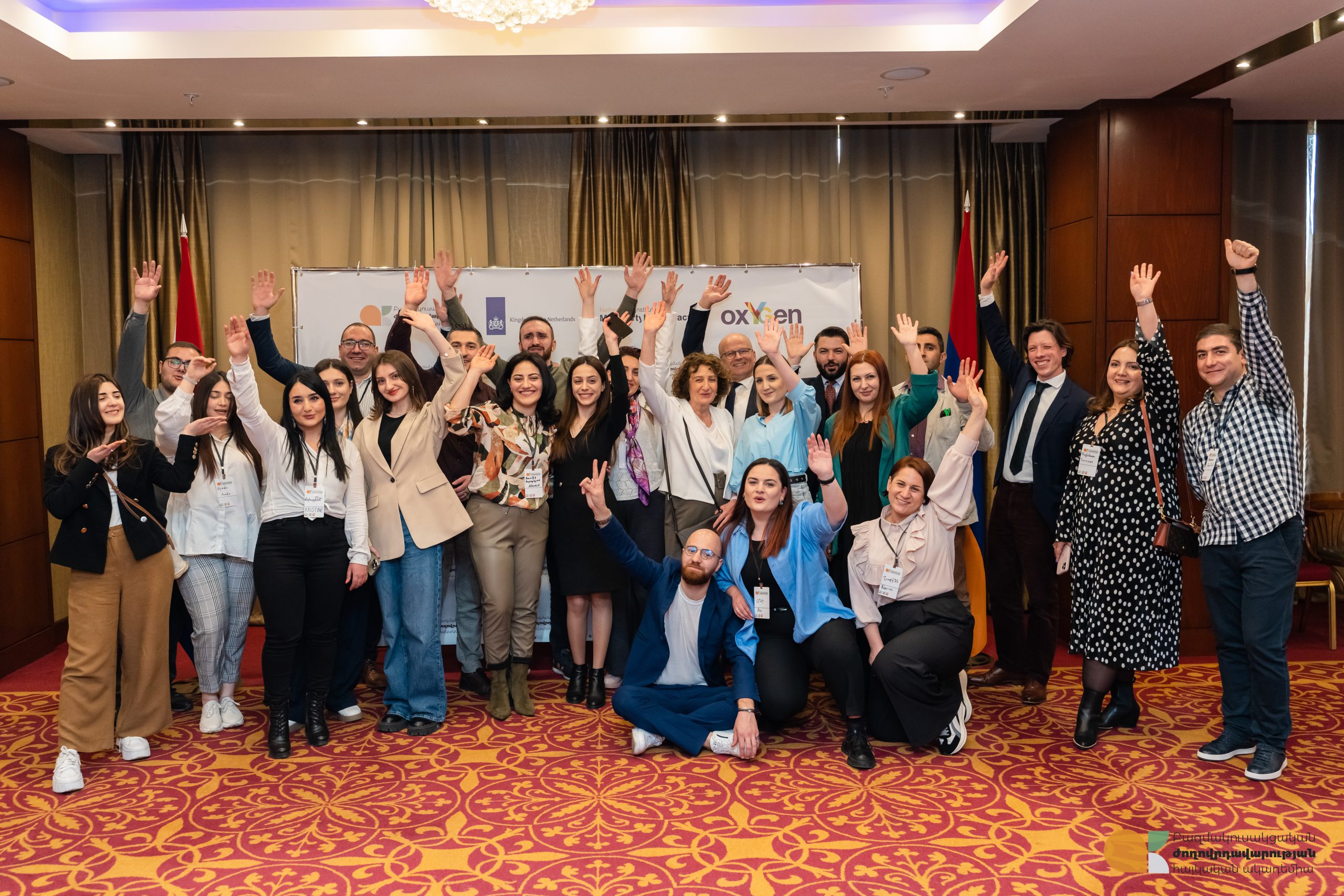Democracy Education
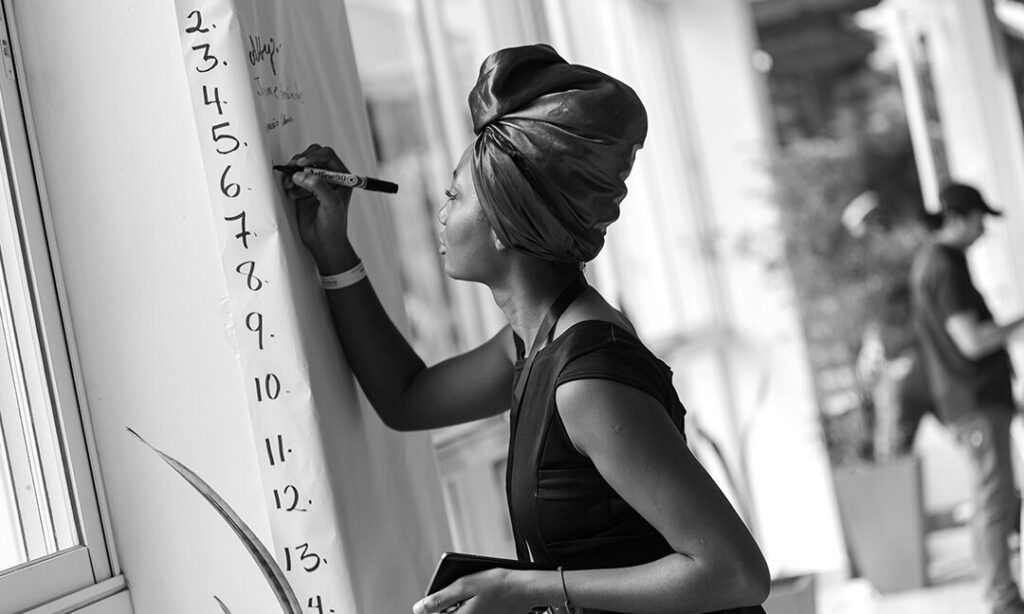
We live in an era marked by social upheaval, climate crises, conflicts and the spread of misinformation. To face up to these challenges, we need a resilient democratic culture. A culture which includes mutual respect, accountability and constructive engagement can enable societies to resolve disputes, address complex challenges and protect fundamental freedoms.
- Democracy Education
- Democracy Schools
- At a Glance
- Meet the Participants
Democracy Education
At NIMD, we are dedicated to fostering an inclusive democratic culture through our democracy education.
We work with political leaders, aspiring politicians, civil society and citizens to help them develop the skills and understanding they need to contribute meaningfully to their democracy.
Our Democracy Education initiatives include a broad range of activities – including games, trainings, talks, campaigns, festivals and our Democracy Schools. Each of these activities aims to foster democratic values; understanding and collaboration across political divides; and respect for people with different backgrounds and viewpoints.
Through our multifaceted approach, NIMD aims to build a network of people willing to work across divides to shape and strengthen their democracy. People who are equipped with the skills and knowledge that they will need to create change and foster inclusiveness and responsiveness in all their work.
At the heart of NIMD’s Democracy Education approach are our Democracy Schools, which bring together politicians and civil society representatives.
Democracy Schools
NIMD has Democracy Schools across 15 countries.
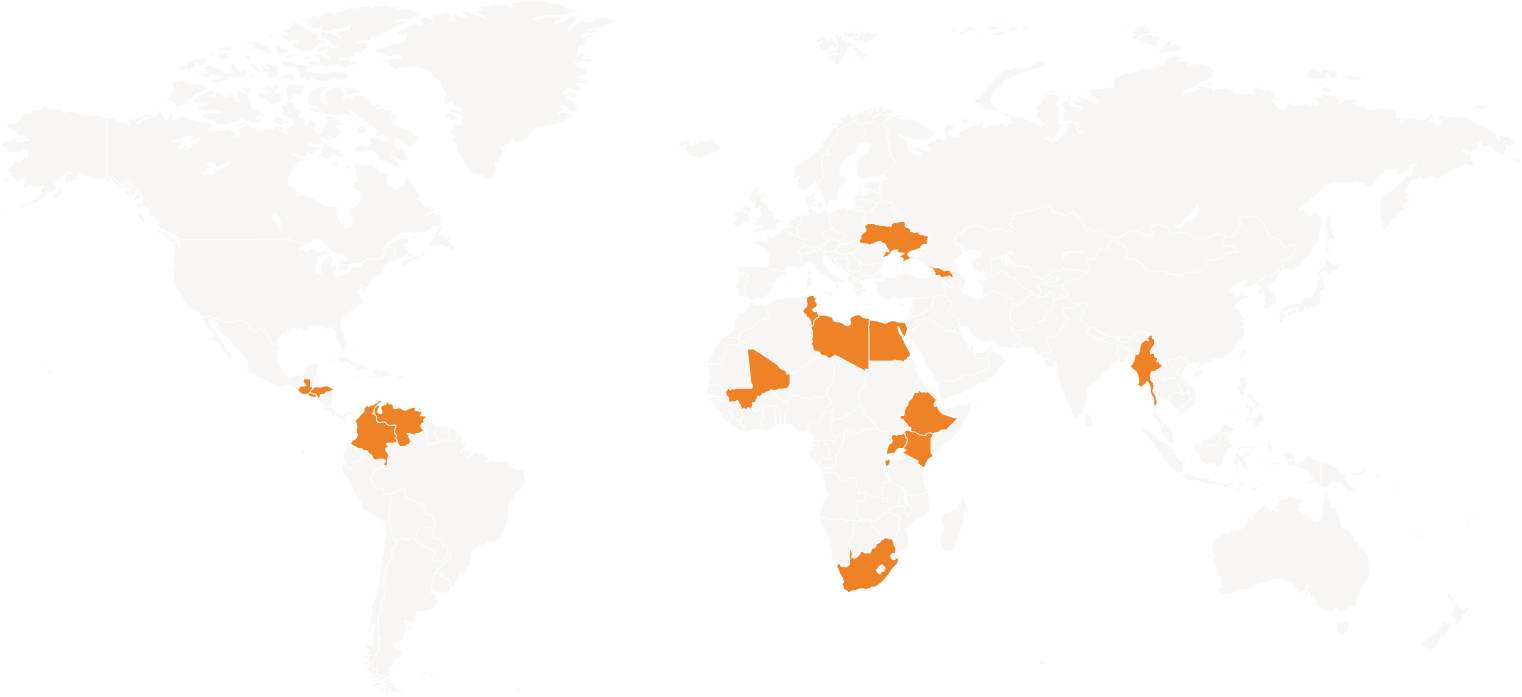
The schools provide a safe space for political leaders, aspiring politicians and civil society representatives to build knowledge and learn essential skills in order to influence politics.
Central to our approach is trust-building. Each of our Schools lasts at least 10 days, with a focus on respect and openness, allowing the participants to build connections across political and ideological divides. We also promote democratic values and a deep understanding of democratic norms and practices.
Through this approach, our participants develop a network of accountable political and civic actors dedicated to working together to uphold and strengthen democratic culture.
In the long-term, this dedicated network has the power to foster interparty cooperation; increase political representation for structurally excluded groups; and drive progress towards democratic consolidation.
At a Glance
Meet the Participants
Participants in NIMD’s Democracy Schools bring a remarkable diversity.
Depending on the School, our participants can vary from young people making their first steps into politics to established Members of Parliament and political leaders.
Representing political parties from across the spectrum as well as a plethora of civil society organizations, each participant brings unique viewpoints that enrich discussions and foster a deeper understanding of democracy in practice.
76
Percentage of NIMD Democracy School Participants under 35 in 2024
Participants also come from varied backgrounds. In our quest to ensure all groups have a voice in their democracy, we ensure to engage those traditionally excluded from politics, including young people, indigenous communities, people living with disabilities and women. We also make an effort to reach beyond large urban areas and into rural areas where connections with central governments may traditionally have been weak, and so our participants are often from diverse geographical areas.
Yet, regardless of their background, seniority, region or political stance, all participants share something powerful: A commitment to learning, growing and strengthening their democracy.
Democracy School stories
- Meet Aya Alnajjar, a participant of the Jordan School of Politics. She reflects on her experience, what she learned and how it has influenced her.
Read her story. - Meet the new generation of Honduras Democracy School participants, and learn how they are building on their skills and knowledge to strengthen democracy.
Read their stories. - Meet the participants of our Kenya Democracy Academy for Members of Parliament, a platform for fostering democratic values, promoting good governance and honing the skills of its participants.
Read their stories.
A Participant's Journey
It’s not easy to embark on an intensive course of learning, putting yourself out there, meeting new people who are different from you, and opening your mind to learning and growing.
But that’s exactly what each of our Democracy School participants does. And each follows their own unique journey – from what they learn, to the people they connect with, to how they apply their new skills, knowledge and perspectives beyond the School.
But, there are some things our participants emphasize again and again when reflecting on their experience at an NIMD Democracy School: the diversity, the inclusive and impartial setting, the interactive approach to learning and the focus on democratic values…
Let’s follow in the footsteps of our Democracy School participants to learn more about their experiences.
01 — First impressions
As their time at the Democracy School unfolds, the participants start to delve into their learning experience.
Unlike one-off training programmes, Democracy Schools are intensive programmes that cover a broad range of modules. While topics vary from school to school, all Democracy Schools aim to provide a robust foundation on democracy and politics.
02 — Democratic knowledge: Laying the groundwork
As their time at the Democracy School unfolds, the participants start to delve into their learning experience. While topics vary from school to school, all Democracy Schools aim to provide a robust foundation on democracy and politics.
The Honduras Democracy School gave us the opportunity to receive rigorous formal political training, which does not exist elsewhere in Honduras. – Noe Banegas, Democracy School participant, Director of Arboles de Justicia, and Liberal Party electoral candidate
Through talks, individual learning, games and dialogues, expert teachers guide the participants as they gain a deep understanding of everyday politics, democratic institutions and core democratic concepts.
This will help me serve better and be more impactful on the lives of my constituents by creating better and more effective strategies for implementation. – Rozaah Buyu. Member of Parliament in Kenya and Democracy School participant.
The participants also learn about their own country’s democracy: its roots, culture, history and how it functions in practice. Some participants have reported feeling closer to their communities as they deepen their understanding of major issues that concern them; and the history that shapes their everyday realities.
03 — A lifetime of skills
Successful participation in politics goes beyond knowledge. Through group work, presentations and coaching, our participants gain a comprehensive set of practical skills to enhance their ability to influence democratic processes meaningfully and constructively. These include speech writing, public speaking and media communication.
The Democracy School has taught me to be a better leader and […] how to listen. – Democracy School participant, Colombia.
Looking back, our participants say they were struck by the diversity and practicality of the skills they learned. They mention, for example, the use of colours in political communication; how to cope with power play; and how to modulate tone of voice during debates, meetings and exchanges.
As one participant puts it “the School taught me a lifetime of skills”. Indeed, with their newly honed abilities, the participants have what they need to make their unique contribution to their democracy, whether that means effectively lobbying for policy changes as civil society; presenting their political vision and running as an electoral candidate; or debating effectively for a new law in Parliament.
05 — A new perspective
So our participants leave the Democracy Schools with the knowledge and skills they need to uphold their democracy. But our Schools also offer something more: an opportunity to see the world in a different light.
First, the curriculum teaches democratic values. The participants are encouraged to think about the role of politicians; their connection to the population and their responsibilities to their country.
I have learned that politics is not a competition; it is an art to help build a better country. It is to serve. – Democracy School participant.
Second, the composition of each School and the structure of the classes has a big impact on participants’ mindsets. The participants have opened their minds to learning; they have exposed their vulnerabilities through individual exercises and group work; they have engaged in games and activities. And they have done all this alongside people from different backgrounds, who hold different beliefs and ideologies.
In doing so, they have learned to trust one another, work hand-in-hand and build friendships.
The most beautiful thing about this experience is the opportunity to interact with my peers from all over the political spectrum. I made genuine friendships with my colleagues and learned an introductory lesson: that differences of opinion do not spoil friendship! – Participant of the Jordan School of Politics
So, while they enter the Academy as a group divided by difference, our participants leave with lasting connections; a belief in respect and collaboration across divides; and a strong network of well-informed, skilled and determined young people dedicated to working towards a more inclusive and responsive democracy.
I have become more of a listener, I have become a person more open to experience, to meet people from other regions in my party, to understand their problems. Instead of making my ideals dominate the conversation, I learned to prefer the dialogue and communication. – Democracy School participant.
"91% of our participants say they left the School with more respect towards people with different values and opinions."
Beyond the Democracy Schools
Even after their training ends, we continue supporting our alumni as they apply their skills and knowledge to influence democratic change in their communities.
First, we invite our alumni to keep us abreast of their developments, and aim to provide continued practical support and guidance.
Examples of alumni developments
In Jordan, an alumnus, along with colleagues, chose to engage in partisan work and establish a civil, democratic party.
Several alumni of the 2024 edition of the Honduras Democracy School are candidates for elected positions in the 2025 primary elections.
An alumnus from Mali kick started an association (GRADI-Mali) to raise awareness on the importance of democracy among the general public.
Alumni of the Uganda Democracy Academy have taken leadership roles in their communities, including Chair of Youth Councillors in the Buganda region and Vice President of the Uganda Student Association.
And we continue to support our alumni as they expand and nurture the network of democracy advocates they’ve built through the Democracy School. Through regular alumni events and activities, they connect with participants from previous cohorts, deepen their bonds, engage in open dialogue, and collaborate on shared goals.
Together, this united network—bridging divides and equipped with the skills to amplify their voices—has the power to drive meaningful and lasting change.

